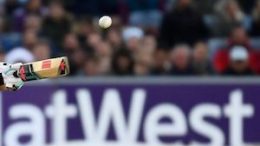NatWest Group plc — the bank formerly known as RBS — has reported pre-tax profit of £4 billion for the 2021 calendar year compared to a £351 million loss the previous year.
The bank — still 51% owned by the UK taxpayer following its bailout in 2008 — said it would pay a 7.5p per share dividend and conduct a share buy-back programme of up to £750 million in the first half of the current year.
Customer deposits increased by £48.1 billion during 2021 to £479.8 billion.
NatWest said it intends to maintain ordinary dividends of around 40% of attributable profit and to distribute a minimum of £1 billion in each of 2022 and 2023 via a combination of ordinary and special dividends.
It said it intends to “maintain capacity to participate in directed buybacks of the UK Government stake, recognising that any exercise of this authority would be dependent upon HMT’s intentions and is limited to 4.99% of issued share capital in any 12-month period.”
NatWest said: “We will consider further on-market buybacks, in addition to the £750 million announced today, as part of our overall capital distribution approach as well as inorganic opportunities provided they are consistent with our strategy and have a strong shareholder value case …
“As part of the NatWest Group capital and funding plans we intend to issue between £3 billion to £5 billion of MREL-compliant instruments in 2022, with a continued focus on issuance under our Green, Social and Sustainability Bond Framework.
“NatWest Markets plc’s funding plan targets £4 billion to £5 billion of public benchmark issuance.”
NatWest chairman Howard Davies, 71, brushed off media speculation that he was preparing to leave his post.
“Reports of my death have been much exaggerated,” said Davies on a call with reporters.
“There are no plans for me to leave at present, there is no process under way.”
Davies said his term runs until July 2024 and he expects to remain in post for the “foreseeable future.”
AJ Bell Financial Analyst Danni Hewson said: “Expectations are set pretty high for the UK banks heading into their latest reporting season and this helps explain why, despite a return to profit and otherwise pretty positive update, Natwest got us off to a subdued start in terms of its share price.
“After all the banking sector is one of the few industries which will be waving flags and cheering as interest rates are increased as it allows them to generate a higher return from their lending activities.
“The better than expected earnings and hike in the outlook were, to some extent, baked in, and investors may be concerned about the possibility of an increase in bad debts as its customers face a cost of living crisis.
“This could outweigh any boost to profitability from higher rates.
“Natwest seems relaxed on this score and has actually reduced its guidance on impairments – whether that view will be tested in 2022 remains to be seen.
“If it holds, then Natwest should be in a position to dole out more generous shareholder returns, which is a key attraction of investing in the sector.
“It should also enable it to further reduce the Government’s stake by buying shares.
“Natwest has slipped a little bit behind target on cost reduction, thanks to higher inflation, which may be adding to some investor nervousness and the company is yet to see any progress on that key measure of profitability – net interest margin.”
Sophie Lund-Yates, equity analyst at Hargreaves Lansdown, said: “Natwest’s tone is one of reserved optimism, despite ongoing uncertainty.
“Lending levels and therefore net interest margins are being buoyed by heightened mortgage demand.
“While the fundamentals of the UK housing market remain intact, we may well have passed the peak of demand meaning other areas are going to have to pick up the slack.
“Given the disappointing results from the group’s non-interest related income, its ability to do this in the short term has been called into question.
“Shareholders have been rewarded for their patience through the uncertainty of the last couple of years, with a £750m buyback announced.
“That is no doubt a sweetener, but it’s done little to relieve the market.
“It’s likely investors are expecting even more from banks, thanks to the helpful backdrop of rising interest rates, and given Natwest is arguably over-capitalised, it’s hard to disagree.
“One area the bank isn’t being accused of under-spending is the bonus pot, which may well be a bug bear in the public domain, but the harsh truth of the matter is this does little to move the dial.”
